Fritextsökning
Artiklar per år
Innehållstyper
-

Samuel Lagercrantz: ”Drömmen blev en mardröm för life science-entreprenören”
En hyllad forskare och entreprenör i Västsverige tvingades lämna bolaget han själv grundat. Fallet har väckt stort intresse bland Life Science Swedens läsare. Samuel Lagercrantz, chefredaktör för Life Science Sweden, kommenterar fallet.
-
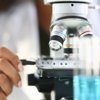
Flera cancerstudier dras tillbaka efter misstänkt fusk
I början av året påstod en bloggare att flera artiklar skrivna av forskare på cancerinstitutet Dana-Farber, som är kopplat till Harvard, innehöll felaktigheter. Artiklarna var i flera fall publicerade i prestigefyllda vetenskapliga tidskrifter. Nu vill institutet att flera artiklar dras tillbaka eller korrigeras.
-

EMA planerar möte om lecanemab
Den europeiska läkemedelsmyndigheten EMA:s vetenskapliga rådgivande grupp (SAG) väntas inom kort sammanträda för att diskutera ansökan om marknadsgodkännande för Alzheimerläkemedlet lecanemab.
-
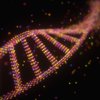
Business Sweden: “Companies have a lot to offer in data-driven precision medicine”
Data-driven precision medicine can potentially solve major healthcare problems, states Business Sweden in a new report on the subject.
-

The physician at the tech giant: “Observations in the emergency room made my mind up”
When Nasim Farrokhnia was in third grade at school in Tehran, the capital of Iran, her father gave her a book about Marie Curie, which soon became her favourite book. Perhaps her interest in science was born there and then, as science and new technology have since been a constant feature of her working life. Today, she is a Healthcare Manager in Microsoft’s Western Europe team.
-
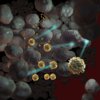
Lundabolag tar in finansiering för utveckling av radionuklidterapi
Spago Nanomedicals styrelse föreslår en nyemission på upp till 30,6 miljoner kronor för att finansiera den fortsatta utvecklingen av bolagets cancerbehandling Tumorad.
-

Marie Gårdmark: ”The situation is not satisfactory”
”The legislative tool-box is limited, but carrots in the form of longer exclusivity has already proven successful, this has for example increased registration of new products in rare diseases. But will it also work to increase access for all EU patients
-
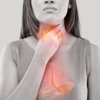
Studie: Ingen ökad risk för cancer hos de flesta med refluxsjukdom
En ny studie gjord av forskare vid Karolinska insitutet pekar på att en majoritet av patienter med refluxsjukdom och normal slemhinna inte hade någon ökad risk för att utveckla cancer.
-

Samuel Lagercrantz: A special kind of hellishness afflicts post-COVID patients
In addition to the disease itself those suffering from post-COVID have to deal with people who try to label them as hypochondriacs, writes Samuel Lagercrantz in an editorial.
-
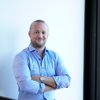
Life Science Sweden heads to the Oresund region! ‒ Hello there Michael Linnell
Life Science Sweden’s The Future of Swedish Danish Life Science and New Updates in Drug Formulation & Bioavailability meetings are coming up soon. We asked Michael Linnell, project manager for Life Science Sweden’s event portfolio, a few short questions.
-

Why the world renown researcher Marc Tessier-Lavigne resigns as Stanford´s president
In mid-summer, neuroscientist Marc Tessier-Lavigne announced his resignation as President of Stanford following allegations of manipulated study data. According to the reporter Theo Baker, who first reported the story, Tessier-Lavigne “rewarded the winners and punished the losers”. Here is the background of the story which has shaken the American scientific community over the summer.
-

Stanfords rektor avgår efter anklagelser om forskningsfusk
Mitt i sommaren meddelade neuroforskaren Marc Tessier-Lavigne att han skulle lämna sin post som rektor för Stanford efter anklagelser om manipulerade studiedata. ”Han belönade vinnarna och straffade förlorarna”, säger reportern som avslöjade honom. Här är bakgrunden till vad som fick den uppburne forskaren på fall.
-

Samuel Lagercrantz: The government’s performance in healthcare and life sciences so far
Since the change of government in Sweden, developments in the healthcare sector have shown promising signs, but the outlook in life sciences is less promising, writes Samuel Lagercrantz in an editorial.
-

Study: Chat GPT is more empathetic than doctors
The AI tool Chat GPT is not only more accurate when it comes to answering patient questions – the chatbot is also perceived as almost 10 times more empathetic than real doctors, a new study reveals.
-

Livskvalitet ska lyftas när 31 cancerforskare delar på 124 miljoner
Cancerfonden gör en särskild satsning på forskning om patienters livskvalitet när totalt 31 forskare får dela på 124,3 miljoner kronor i anslag.
-

Förlängd tidsfrist för medtechregler – ”Löser inte alla problem”
Nu står det klart att förslaget om en förlängd övergångsperiod för krav på certifiering enligt EU-regelverket MDR blir verklighet, efter ett beslut i EU:s ministerråd. ”Det är ett steg i rätt riktning, men man ska ändå säga att förlängningen av övergångsperioden inte löser alla problem”, säger Anna Lefevre Skjöldebrand, vd för Swedish Medtech.
-

“An entire industry is about to be wiped out”
According to Jennie Ekbeck, CEO of Umeå Biotech Incubators, Sweden risks not having any small diagnostic companies left in five years.
-

Editorial: ”AI that both impresses and frightens”
”In the past, I've rarely been particularly impressed by something that was produced by AI. But this is something completely different”, Samuel Lagercrantz writes in an editorial.
-

Hello Jenni Nordborg!
Life Science Sweden would like to know more about Jenni Nordborg and asks her about her new job, why she became a chemical engineer and who her role model is.
-

Column: ”Authentic leadership and clear mandates pave the way for more female CEOs”
”I believe that the aspect of having clear mandates and titles on the one hand and women progressing into top positions must be explored further”, Helena Strigård writes in a column.
-

Ny vd till Vitrolife
Det medicintekniska företaget Vitrolife har nu utsett Bronwyn Brophy till ny vd.
-

Bioinvent utvalt till amerikanskt blodcancerprogram – får in 31 miljoner
, motsvarande omkring 31 miljoner svenska kronor.
-

She creates pharmaceuticals on a 3D printer
The correct dosage for each individual, regardless of whether the pharmaceutical is for a seriously ill child or a frail elderly person, is the mission of a well-advanced project with 3D-printed drugs at Uppsala University. “It will soon be available in clinics”, says Christel Bergström, who is heading the project.
-

Neanderthal genes and Nobel Prize in a popular lecture at Bioscience
An inherited gene variant from our ”evolutionary cousins” – the extinct Neanderthals – may affect how our bodies break down certain drugs. “It’s only a matter of time before we actively start screening for it,” said KI researcher Hugo Zeberg when describing the study at Bioscience 2022.